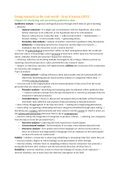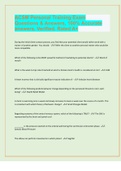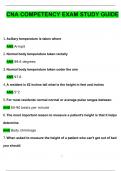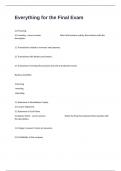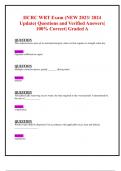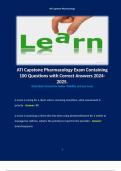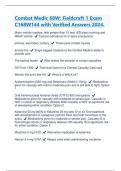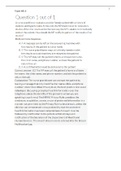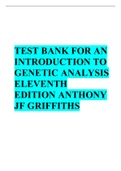Samenvatting
Summary literature exam 2 Research Methods for Analyzing Complex Problems (AM_1182)
- Instelling
- Vrije Universiteit Amsterdam (VU)
This is a summary of the literature mandatory for exam 2 for the course RMCP based on the book "Doing research in the real world" from Gray.
[Meer zien]
